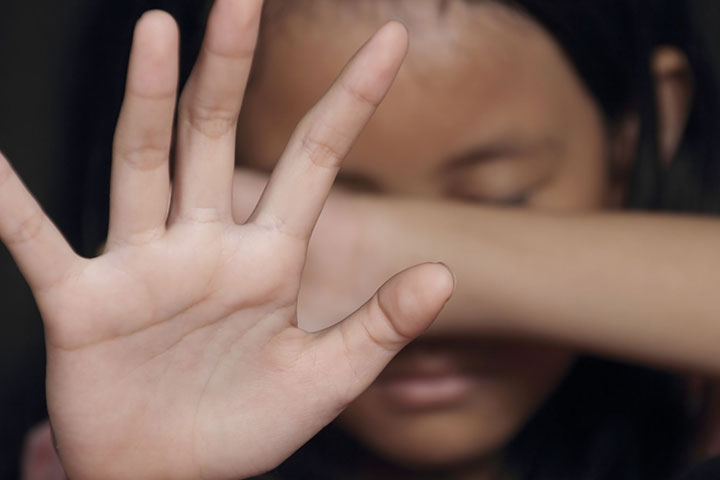
Trauma
Most people have some stress reactions after trauma. A traumatic event can be defined as something that happens to you and/or to a loved one that results in you fearing that you or someone you love was going to die. Some examples of trauma are rape, sexual assault, domestic abuse, a health crisis, combat, or disaster. Some people develop stress reactions right after the trauma occurs where others may experience a more delayed or prolonged stress reaction. However, it is important to take note of the reactions that occur as a result of the trauma that don’t resolve themselves and that your reactions are becoming more disruptive to your life. In cases such as these, you may seek professional help to identify ways to cope with your reactions, as you might have trauma and stress-related disorders.
Some common signs and symptoms of trauma and stress-related disorders include (but aren’t limited to those included on this list):


Reliving the event (flashbacks):
Memories of the traumatic events can resurface at any time and when this happens, you may feel the same fear and horror that you felt when the event took place. Some examples of this include:
- Nightmares
- You may feel like you are re-living the event again
- Triggers or trauma reminders (you may hear, see or smell something that causes you to relive the event)
Avoidance
- You may try to avoid situations or people that trigger (or serve as reminders) memories of the traumatic event. You may even avoid talking about or even thinking about the event. For example, you may try to keep very busy or avoid seeking help because it keeps you from having to think about or talk about the trauma.
- Feeling numb (having difficulty expressing your emotions) is often a symptom of trauma because it is another way to avoid memories.
Hyperarousal
You may be jittery, or always on “high alert”. Many people who have experienced trauma describe themselves as being unable to relax. You might suddenly become angry or irritable. Other symptoms associated with hyperarousal involve:
- Sleep difficulties
- Concentration difficulties
- Having an exaggerated startle response (being easily startled by a loud noise, unfamiliar surroundings and/or places)
Dissociation
Dissociation is defined as a disconnection from the current physical, emotional or mental environment that can affect functioning in every major area of life. Dissociation is a common coping strategy in the presence of overwhelming stress.
Seeking Help
(Information below is taken from the U.S. Department of Veterans Affairs, National Center for PTSD Website at www.ptsd.va.gov.)
If you have been through a traumatic event, you may find it hard to talk about your experiences. But, it can be helpful to tell your doctor or a counselor about any symptoms you have. Witnessing or going through a trauma can lead to both emotional and physical problems.
The checklist below can be a good start to talking about your symptoms following trauma. You can print this page, complete the checklist and show it to your doctor, therapist, or someone who can help you find care.
Sharing this information will help a health care provider know you better and plan the best treatment for you. Not everyone who goes through trauma will get trauma and stress-related disorders, but keep in mind that good treatments are available even if you only have some trauma and stress-related symptoms.
A brief checklist of trauma symptoms
Check the symptoms below that you experience. Include symptoms you have even if you are not sure they are related to a traumatic event.
I experienced or witnessed a traumatic event during which I felt extreme fear, helplessness, or horror.
The event happened on (day/month/year) _______________.
What happened? ________________________________________.
I have symptoms of re-experiencing or reliving the traumatic event:
- Have bad dreams or nightmares about the event or something similar to it
- Behave or feel as if the event were happening all over again (this is known as having flashbacks) Have a lot of strong or intense feelings when I am reminded of the event
- Have a lot of physical sensations when I am reminded of the event (for example, my heart races or pounds, I sweat, find it hard to breathe, feel faint, feel like I’m going to lose control)
I have symptoms of avoiding reminders of the traumatic event:
- Avoid thoughts, feelings, or talking about things that remind me of the event
- Avoid people, places, or activities that remind me of the event
- Have trouble remembering some important part of the event
I have noticed these symptoms since the event happened:
- Have lost interest in, or just don’t do, things that used to be important to me
- Feel detached from people; find it hard to trust people
- Feel emotionally “numb” or find it hard to have loving feelings even toward those who are emotionally close to me
- Have a hard time falling or staying asleep
- Am irritable and have problems with my anger
- Have a hard time focusing or concentrating
- Think I may not live very long and feel there’s no point in planning for the future
- Am jumpy and get startled or surprised easily
- Am always “on guard”
I experience these medical or emotional problems:
- Stomach problems
- Intestinal (bowel) problems
- Gynecological (female) problems
- Weight gain or loss
- Pain, for example, in back, neck, or pelvic area
- Headaches
- Skin rashes and other skin problems
- Lack of energy; feel tired all the time
- Alcohol, drug, or other substance use problems
- Depression or feeling down
- Anxiety or worry Panic attacks
- Other symptoms such as: ______________________________
Summing it up
If you checked off some of the symptoms above, it is important for you to let your health care provider know. This information helps providers plan your treatment. It can also help them connect you with the services you may need.
If you think you may have trauma, print this checklist, fill it out, and take it to a health care provider, or someone you trust.
Anxiety and Stress Center, P.C. therapists are available to meet with you during individual therapy sessions to assist you in developing coping strategies to address your trauma symptoms so that you can learn to reduce your symptoms and effectively work through your trauma. Please feel free to contact a therapist today at 708-349-5433 to schedule an appointment. In the meantime, you will find resources below to further educate yourself about trauma and the recovery process.
Information Resources –
- International Society for Traumatic Stress Studies
www.istss.org - National Center for Trauma-informed Care
www.samhsa.gov/nctic - National Institute of Mental Health (NIMH)
www.nimh.nih.gov